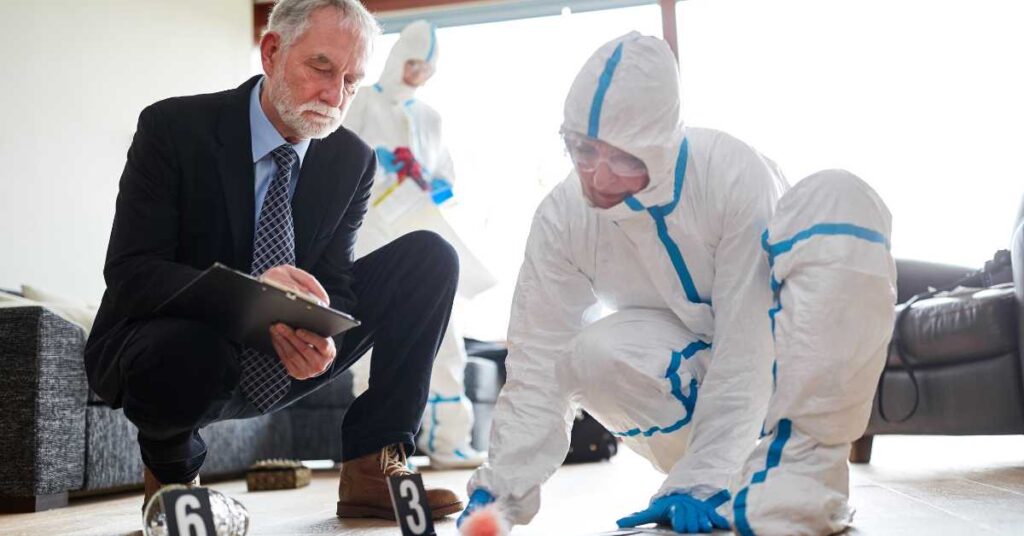🧬 What’s the Role of DNA, Fingerprinting, and Other Forensics in Florida Criminal Drug Cases?
When people are charged with serious crimes in Florida, one of the most common questions I get is:
“Will they use DNA or fingerprints to prove it was me?”
If you’re facing criminal charges—especially in a drug case—it’s important to understand how forensic evidence plays a role in building (or challenging) the case against you.
🧾 How Prosecutors Use Forensic Evidence
In most drug-related cases, prosecutors use forensic tools to establish identity. Their goal is to prove that:
- You were at the scene of the crime
- You handled the drugs or contraband
- You are linked to a specific item or location
🧬 Common forms of forensic evidence:
- DNA swabs from objects (e.g., packaging, paraphernalia)
- Fingerprints on containers, bags, weapons, or surfaces
- Touch DNA from skin cells left behind
- Footwear impressions, fibers, or trace elements
⚖️ When Forensics Help the Defense
Forensics aren’t always bad for the defense. In fact, they can often raise reasonable doubt.
Here’s why:
Just because your DNA or fingerprint is found doesn’t mean you committed the crime—especially if you have a legitimate reason for being at the location.
For example:
- If the police find your fingerprint in a home you regularly visit, that doesn’t prove you were there when the alleged crime occurred.
- If DNA is found on an object, but that object wasn’t directly connected to the drugs or criminal conduct, the link may be too weak to support a conviction.
🛑 Why It’s Crucial to Challenge Forensics Early
Florida prosecutors may present forensics as “slam-dunk” evidence—but these techniques aren’t infallible. Your defense lawyer should:
- Scrutinize how the evidence was collected
- Confirm that testing followed chain-of-custody protocols
- Review lab reports for errors or inconsistencies
- Challenge whether the evidence actually proves guilt
📌 Remember: Presence ≠ possession. Proximity alone isn’t always enough for conviction.
📞 Facing Charges Involving Forensic Evidence? Let’s Talk.
If you or a loved one are being charged in a Florida drug case and the State is relying on DNA, fingerprints, or other forensic evidence, you need a defense strategy now.
📲 Call Michael White, P.A. at (954) 270-0769 or contact us online to schedule your free consultation.
We’ll assess the forensics, identify weaknesses, and fight aggressively on your behalf.
💬 Frequently Asked Questions: Forensics in Florida Drug Cases
Q1: How is forensic evidence used in Florida drug cases?
A: Prosecutors use DNA, fingerprints, and other forensic evidence to establish identity, link a person to a crime scene, or connect them to the drugs or paraphernalia found.
Q2: Can DNA or fingerprints alone prove someone is guilty?
A: Not always. While forensics can be powerful, the presence of your DNA or fingerprint doesn’t necessarily prove you committed the crime—especially if you had a legitimate reason to be at the scene.
Q3: What is “touch DNA” and how is it used?
A: Touch DNA refers to microscopic skin cells left behind on surfaces. It’s often used to link suspects to objects, but it can be unreliable if the item was touched long before the alleged crime.
Q4: Can forensic evidence be challenged in court?
A: Yes. A skilled defense attorney can challenge the collection methods, lab protocols, and interpretation of the evidence—or argue that the evidence is irrelevant to the alleged offense.
Q5: Do prosecutors always have forensic evidence in drug cases?
A: No. Not all drug cases involve forensic testing. When they do, the evidence may be limited, weak, or circumstantial—making it vulnerable to legal challenge.




